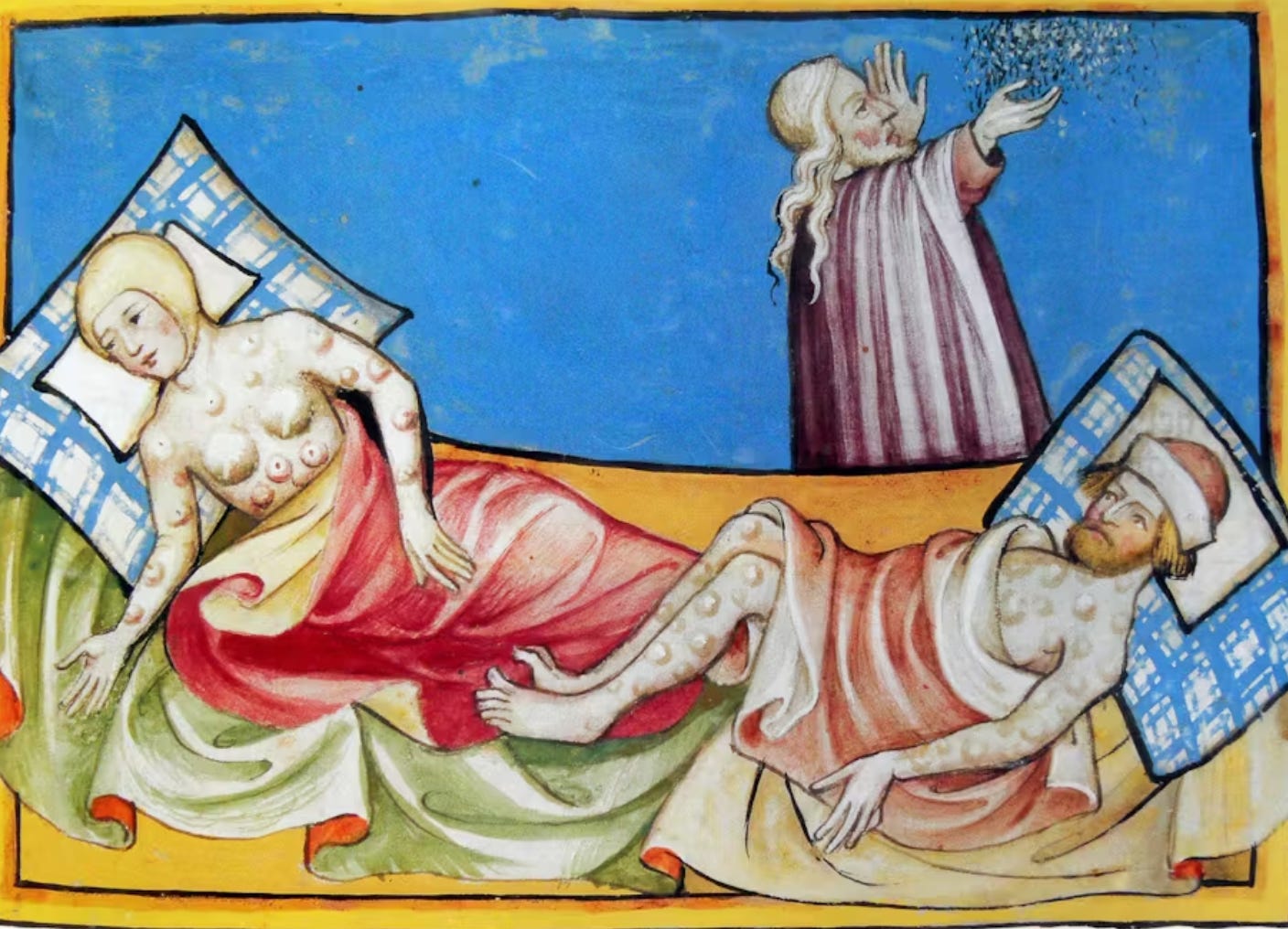Because watching Severance makes me feel stupid, sometimes I read recaps after an episode of it so I can try and figure out why there are goats on the show, or why Adam Scott’s hair looks so much better than mine. Over at New York Magazine, the sidebar to a Severance recap had a feature about Michelle Williams in a new TV series. I was on vacation, so I clicked on it, and I have regrets.
Michelle Williams and Jenny Slate are in a new show called Dying for Sex, which is a comedy based on a podcast about a woman dying from breast cancer. As a breast cancer patient you can imagine what I thought about this which was, roughly, absolutely not. When Molly Kochan, the real life subject of the podcast, discovered that her breast cancer had spread to stage four, she divorced her husband and decided that she was going to spend her remaining days finding out what sexually fulfilled her, which turned out to be some pretty kinky stuff.
Listen, I am aware finding out you have cancer and might die can lead to some weird decision making. I got obsessed with Love Island UK and learning Irish on Duolingo, but I am also a boring vanilla person and on the side of Gen Z when it comes to sex scenes in movies and on TV – I find them cringey and embarrassing. Whenever I see a sex scene in a film, what I picture is the boom guy standing with a mic just off camera, with a greying ponytail and a pack of Camel Lights in his t-shirt pocket, waiting for his union mandated smoke break.
Peeing on dudes and kicking them in the nuts for fun is not my thing, but it was Molly Kochan’s thing, and, you know, that’s fine. She enjoyed it, and she knew she was dying so as long as it’s all consensual, why not? But because we are living in an era where every straight woman between 40 and 60 apparently has to A. get divorced B. be obsessed with sex, the author of the NY Mag piece has to pin Kochan’s cancer story to our cultural moment. She writes:
[We’re] suddenly surrounded by stories, fictional or otherwise, about women over 40 fucking their way to self-actualization: Miranda July’s All Fours, the Nicole Kidman–led MILF renaissance, a deluge of pro-divorce memoirs, a recent New York Times Magazine piece about how Gen-X women are having better sex than anyone else.
The problem with this premise when you apply it to people with cancer is this is twofold: one, cancer makes you feel like shit about your body because your body is actively trying to kill you, and two, sex is temporary. A guy you peed on once is not going to sit with you in the hospital when you’re being intubated, and the loneliness and isolation of cancer mean that you may want someone who is willing to watch you having surgical drains removed, not someone who just wants to help you “fuck your way to self actualization.”
Somehow, in spite of the world having much more urgent issues on its hands, we’re in a moment when everything about women of a certain age seemingly has to rotate around the same narrative: get divorced, have sex with lots of people, and then… what?
Sadly, in the case of Molly Kochan, she died, and she died saying she wished she’d met someone who loved her, not just someone who wanted to fuck her, and she also died saying she didn’t miss sex. This gets buried in the article among the pictures of Michelle Williams sucking her thumb while lying spread eagled on a bed. Granted, Michele Williams looks great – of course she does. And of course Kochan shouldn’t have stayed married to a guy who wasn’t attentive to her, especially when confronted with her mortality.
“Yet another think piece about Miranda July’s All Fours? No thanks, I’d rather get the bubonic plague.”
Nobody should stay married just because they don’t want to be alone, and nobody should stay in a marriage that doesn’t work. And the dying should of course get to do whatever they want as long as it doesn’t hurt other people. But this overriding cultural narrative layered onto Kochan’s story that sex is what every woman over 40 is obsessed with is exhausting, because it is yet another example of people – in this case, often other women – telling women what they should do, think or feel. Aren’t we tired of that yet?
The show and the podcast are apparently pitched as comedy, and I’m on board with cancer being mined for humor, and for cancer patients doing whatever it takes to make the end of their lives bearable. I made so many dumb jokes during treatment, and think it helped keep me somewhat sane. But I remain unconvinced that cancer is sexy. As much as the article strains to make it seem that way, death and dying isn’t sexy, and cancer is a foretaste of death. Unless that’s your kink, I guess. In which case, I recommend Saltburn.



